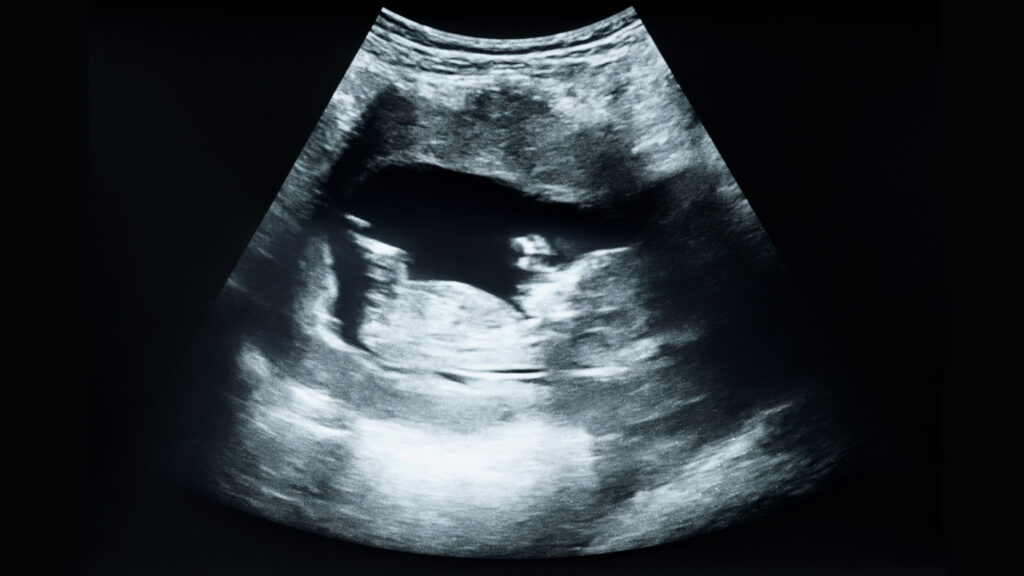In the U.S., about 16% of Black birthing people are immigrants. But even as the federal government and states take steps to improve national maternal health, particularly among Black birthing parents, many immigrant parents are left out of new policy initiatives to provide access to postpartum care.
Worsening maternal health in the U.S. and stark racial disparities have set in motion new policy efforts to increase access to postpartum care during the year following childbirth. The U.S. has a much higher maternal mortality rate than most other high-income countries, and rates of maternal mortality are 2-3 times higher for Black birthing parents relative to white parents. Most pregnancy-related deaths occur in the first year after childbirth, and most are preventable with appropriate medical treatment.
advertisement
For this reason, the primary response by policymakers to address the national Black maternal health crisis has been to extend Medicaid coverage for postpartum care during the 12 months following childbirth. The Medicaid program pays for 4 in 10 births in the U.S. and, until recently, covered postpartum services for only 60 days following childbirth. In 2021, the federal government gave states the option to provide 12 months of postpartum Medicaid coverage. So far, 35 states and the District of Columbia have adopted this policy.
But without explicit state and federal action, these Medicaid postpartum extensions do not cover undocumented immigrants, legal permanent residents (i.e., green-card holders) with fewer than five years with this status, and other noncitizens who have permission to live and work in the U.S. This leaves out many postpartum parents: Nearly one in four births in the U.S. is to an immigrant person, and an estimated one in 13 births is to an undocumented parent. Yet currently, only about half of the states with Medicaid extensions include all lawfully present immigrants, and even fewer include undocumented immigrants.
Even before the Medicaid extensions, many immigrants in the groups mentioned above were excluded from the standard 60 days of Medicaid postpartum coverage. For these groups, states can use alternative federally funded options, but the alternative options are not sufficient to fill in the gaps left by exclusions based on immigration status. Twenty-five states and the District of Columbia use a federal policy known as CHIPRA to waive the five-year Medicaid waiting period for pregnant green-card holders and offer eligibility to other lawfully present immigrants. However, the CHIPRA option cannot be used to cover undocumented immigrants. Twenty states cover pregnancy care for all low-income immigrants regardless of their immigration status under a federal policy called the CHIP Unborn Child option, but these state programs generally exclude postpartum services.
advertisement
We recently published research in the Journal of the American Medical Association showing compelling evidence that Medicaid restrictions for immigrants may translate into fewer immigrants getting postpartum care. We find that low-income immigrants living in states with the most restrictive policies were 11.3 percentage points less likely to receive postpartum care than immigrants in states without restrictions based on immigration status. These differences persist even when we take into account the possibility that states with restrictive policies for immigrants have generally lower use of postpartum care overall, for immigrants and non-immigrants alike.
These findings should be concerning for policymakers because we know that life-threatening medical conditions, such as hypertension and depression, and conditions that limit quality of life, such as pain and urinary incontinence, are common in those early postpartum months. Limited access to postpartum care may have important medical consequences for new parents such as increased risk of hospitalization for hypertensive complications or mental health conditions.
Medicaid reforms providing a full year of postpartum coverage have the potential to decrease the number of immigrants going without postpartum treatment. However, this won’t happen without government action. The federal government and states will need to take deliberate steps to include all immigrants in this new policy response.
For instance, reforms to the CHIP Unborn Child option that facilitate use of federal funding to support postpartum services would make it easier for states to extend access to all low-income immigrants. The recent Biden administration regulatory action to include Deferred Action for Childhood Arrivals (DACA) recipients in CHIPRA pregnancy coverage suggests that executive rulemaking may be an additional approach towards full immigrant inclusion in 12-month postpartum extensions.
To improve access to postpartum care, states should take up currently available policy options that provide federal funds to cover postpartum services, including the newly available 12 months of postpartum coverage, for all lawfully present immigrants. Policymakers should also consider using state funding to include undocumented immigrants in 12-month extensions, a decision that has already been taken by seven states.
Twelve-month postpartum Medicaid extensions are a groundbreaking policy to improve maternal health. Effectively excluding some immigrant groups from this policy will undermine the goal of curbing rising Black maternal mortality in the U.S. This exclusion harms the health of new immigrant parents, with potential downstream consequences for the health and well-being of their children, their families, and their communities.
Maria W. Steenland is a research assistant professor at Brown University. Rachel E. Fabi is an associate professor of bioethics and humanities at SUNY Upstate Medical University. Laura R. Wherry is an assistant professor of economics and public service at NYU Wagner.

